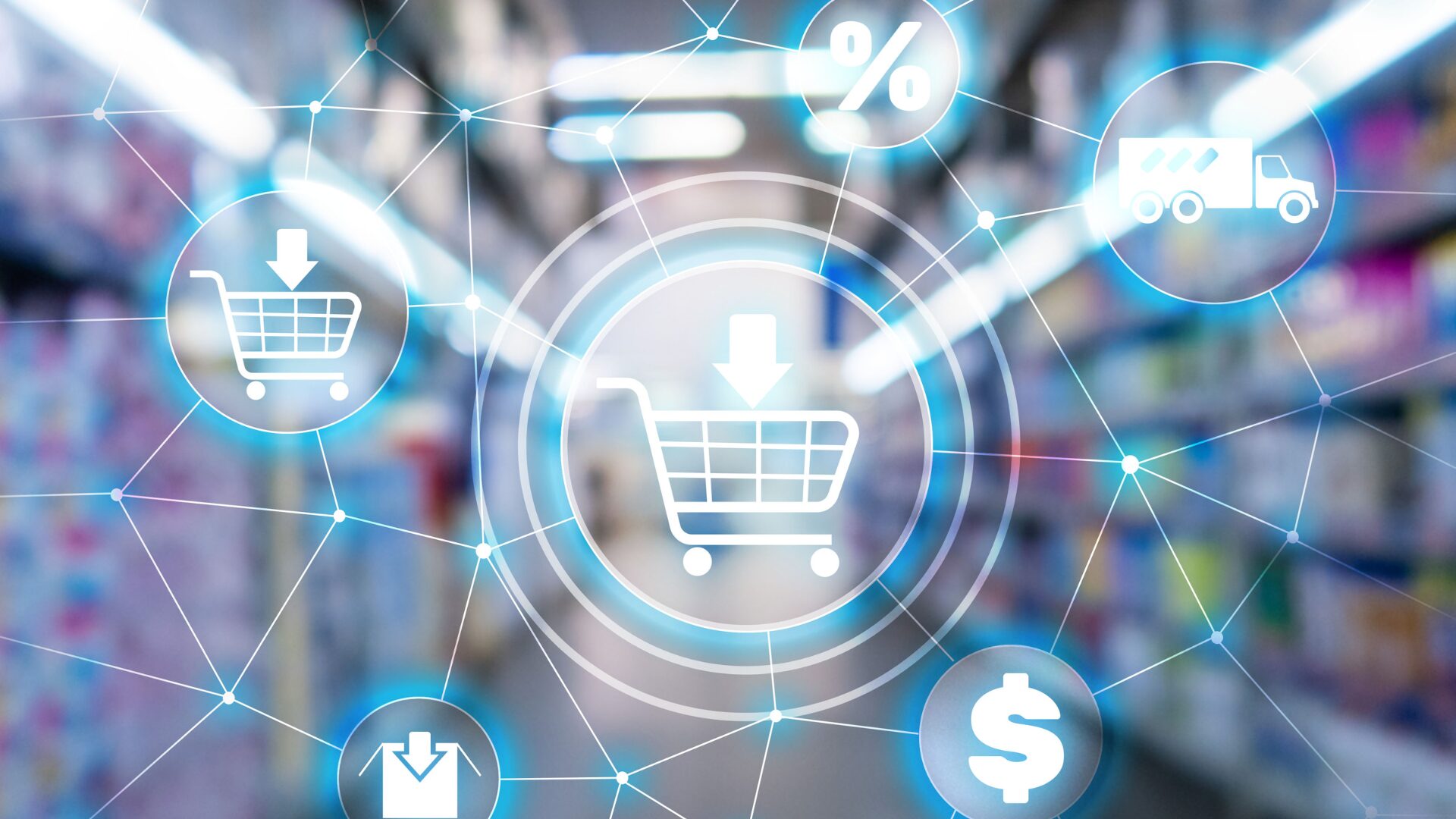Introverts rejoice – a completely silent trip to the grocery store appears within reach. According to Progressive Grocer‘s 2024 Grocery Tech Trends Report, 66% of grocers plan to invest in technology this year. Boston Consulting Group recently found a mostly positive reception among consumers toward advanced digital tech, including smart carts.
Gauging Interest
Jill Wang, a managing director & partner with BCG’s consumer and retail practice, told The Food Institute that approximately 43% of consumers worldwide express excitement about the potential value of these technologies, particularly in making tasks more seamless and enhancing shopping experiences. Additionally, 54% of consumers have already engaged with generative AI for tasks like personalized recommendations and smart home devices, indicating growing familiarity with similar technologies.
Smarts carts, electronic shelf labels and frictionless checkouts are becoming more popular in-stores and online ordering continues to be popular, according to the Grocery Tech Trends Report.
That said, not all grocery shoppers are thrilled about evolving technology, particularly when it comes to out-of-stock products and finding help when issues arise. Wang noted that BCG found roughly 30% of those that they surveyed about AI were conflicted, mainly due to data privacy issues.
Meanwhile, the aforementioned report found that consumers are generally curious about how new technology can improve their experience and that the number of people interested outweighs the amount of technology that’s currently available. About 77% of shoppers say that they’re interested in trying new tech, with millennials and Gen Z leading the pack.
Tech tools designed to make the shopping experience more efficient, such as smart carts, were top of interest for consumers. Thirty-two percent of those surveyed said that they value having a balance of tech and in-store staff.
Widespread Adoption
“While consumer comfort with emerging technology varies, there’s a growing trend toward acceptance driven by rising expectations for brick-and-mortar stores,” said Yaniv Zukerman, CMO of Cust2Mate.
Since the advent of the first supermarket, the traditional in-person shopping experience remained largely unchanged until the development of self-service checkout.
“However, with the decline of self-checkout, there has been a noticeable lull in technological advancements, directly impacting consumer experience,” Zukerman said.
“Innovations like smart carts are … offering consumers a convenient, efficient, and personalized shopping experience like never before.”
So, when exactly will this new tech be at grocery stores nationwide? Experts say anywhere from three years to a decade.
“To give context, it took three decades for consumers to adopt commercial airplane flight from the invention of the plane, and two decades for EV cars to make significant market share adoption from consumers,” Kevin Yu, CEO of SideChef, told told FI. “The good thing for smart carts is that they don’t need to be paid for by the consumer and the COVID-19 pandemic accelerated the adoption of new technologies, pushing consumers to change their habits.”
BCG estimates widespread consumer comfort with smart carts and digital tech in grocery stores at 3 to 5 years, contingent on balancing convenience with data privacy. Oded Omer, CEO and Founder of Wasteless.AI, believes it may take closer to 10 years to consolidate around a single type of mature solution and reduce the cost of capital expenditures for the retailers.
“One thing we’ve discovered is that it takes time for consumers to adopt new technologies, but that once a great solution takes hold and proves itself, consumers will go out of their way to find and use it,” Omer told FI.
The Food Institute Podcast
Tom Hamill, a food and beverage senior analyst for RSM US LLP, joined The Food Institute Podcast to recap the 2024 Summer Fancy Food Show. Hamill shares his thoughts on burgeoning trends from the show and how emerging specialty food brands can best navigate economic factors in the years to come.



